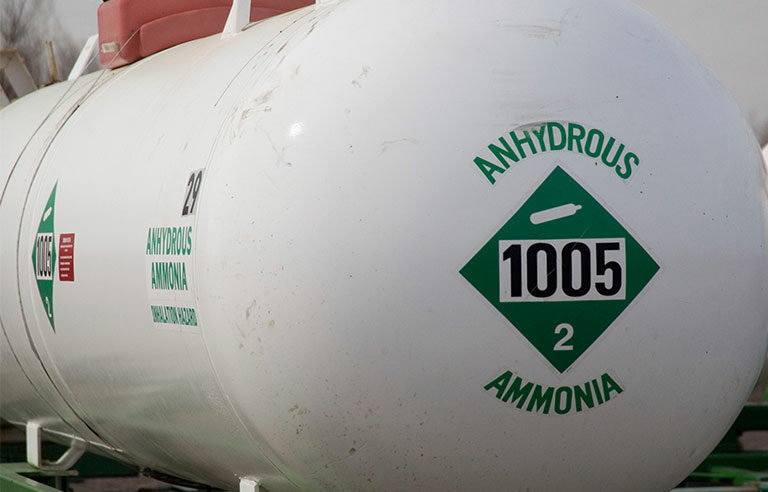First aid for ammonia exposure

Photo: DHuss/iStockphoto
Working with ammonia requires caution. The flammable, colorless gas has the potential to explode if heated, warns the Canadian Center for Occupational Health and Safety. It’s also extremely toxic. Even further, it’s corrosive to the respiratory tract, skin and eyes and can be fatal if inhaled.
According to NIOSH, workers who may come in contact with ammonia include those who manufacture rubber, plastics, fibers and other chemicals; who use soil fertilizer in agriculture; and who use a commercial refrigerant in food processing, as well as miners.
First aid
CCOHS notes that first aid treatment for ammonia exposure can vary depending on the site of exposure and may require advanced training.
Inhalation: If a worker has inhaled ammonia, take safety precautions, such as putting on personal protective equipment, before attempting a rescue. If the victim has trouble breathing, trained personnel should administer oxygen. Don’t allow the victim to move around, because staying still can delay symptoms of pulmonary edema (a condition in which excess fluid gathers in the lungs). Get the victim to a hospital as quickly as possible.
Skin contact: For gas ammonia, flush affected skin with lukewarm water for five minutes. Seek treatment if irritation persists. For liquefied gas ammonia, remove the victim from the source of the contamination. Under no circumstances should you rewarm the affected areas, apply direct heat or rub them. Remove any clothing that sticks to the victim’s skin, and loosely cover the person in a sterile dressing. Don’t allow the victim to consume alcohol or smoke, and get him or her to a hospital for further treatment.
Eye contact: For gas ammonia, flush the contaminated eye(s) for five minutes with gently flowing lukewarm water. For liquefied gas ammonia, CCOHS recommends immediately – but briefly – flushing the eyes with lukewarm, gently flowing water. Then, cover both eyes with a sterile dressing and seek medical help.
Post a comment to this article
Safety+Health welcomes comments that promote respectful dialogue. Please stay on topic. Comments that contain personal attacks, profanity or abusive language – or those aggressively promoting products or services – will be removed. We reserve the right to determine which comments violate our comment policy. (Anonymous comments are welcome; merely skip the “name” field in the comment box. An email address is required but will not be included with your comment.)

